It can be just as hard to figure out what gear you need when starting your kayak fishing adventures as it was to determine what gear you needed when starting to learn how to fish. If you’ve been following this page for a while, you’ve already explored the basics of your fishing gear and what gear you really need to start fishing vs what is more frivolous. But, now you want to expand your fishing experiences. You want to find those hidden gem locations that bank fishermen and boats can’t access. The problem becomes, what gear does that require? We’ve talked about the types of kayaks you may want to choose, and the supplies you’ll want with you for safety and convenience, but what about the most important tool? You’re fishing rod can make or break your fishing trip regardless of it being bank, kayak, or dock fishing.
There are three factors you need to focus on when choosing kayaking fishing rods.
First, what type of fishing will you be doing?
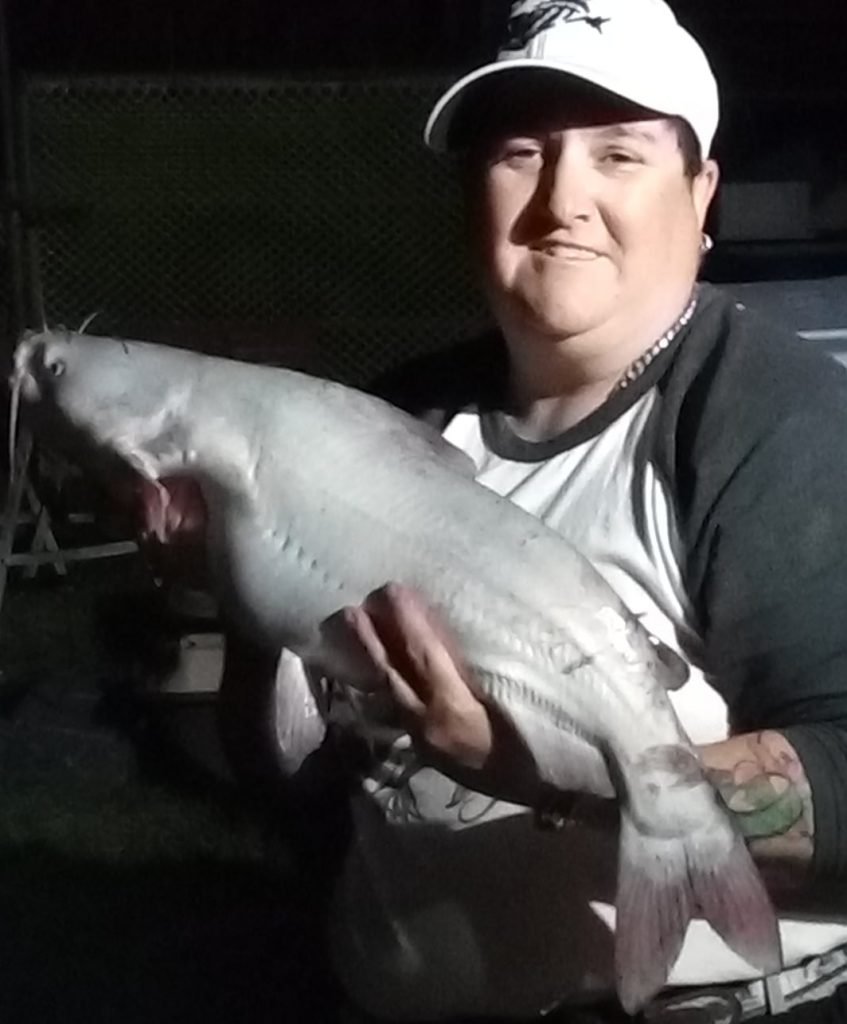
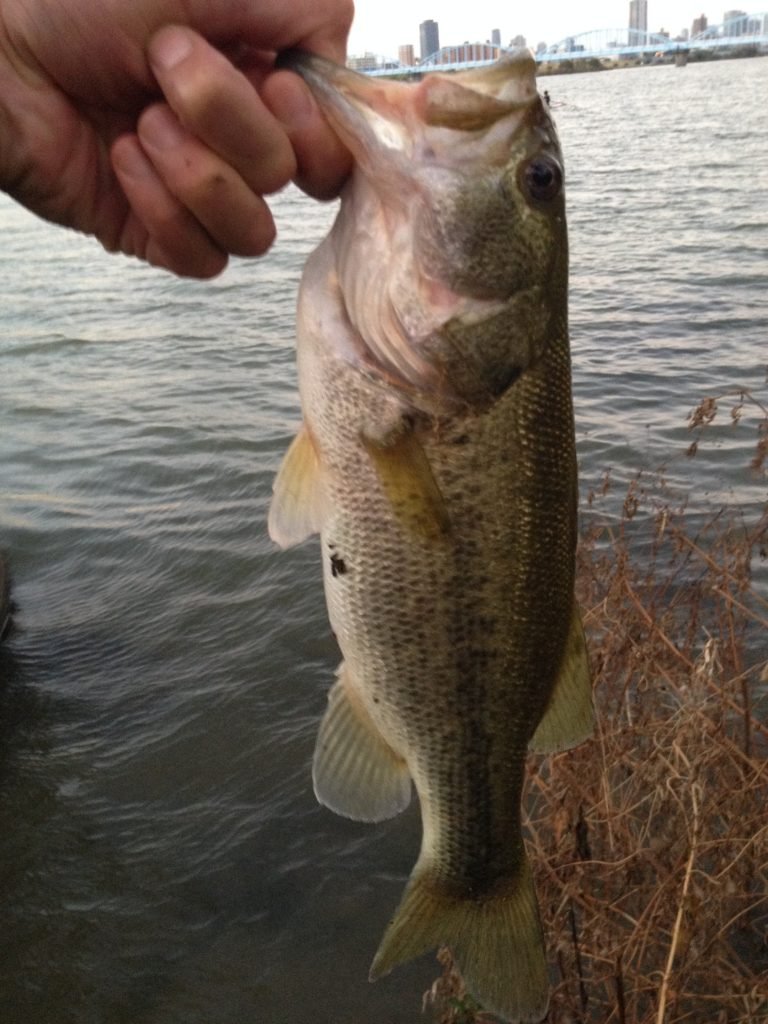


Competitive catfishing won’t need a finesse rod or an ultralight setup. Crappie fishing is only going to need lighter setups. Modern bass fishing will lend itself to a wide array of rod setups, but can most definitely be limited by the fishing you’re going to do at the specific fishery you’re planning for. Always remember to select your gear based on your target species.
Second, what are your current skill levels?
While it’s always good to push yourself, and we at TOQ are all about learning and growing in our outdoors adventures, there is a difference between pushing your comfort level to gain more skill vs fishing beyond your abilities which can cause unnecessary risk. If you’re new to kayaking and are not yet comfortable with standing while you fish, you’re going to need rods that work well for you from a sitting position. If you’re new to fishing and know how to use spinning reels, but have not yet learned baitcasters, a kayak is not the best place to learn.
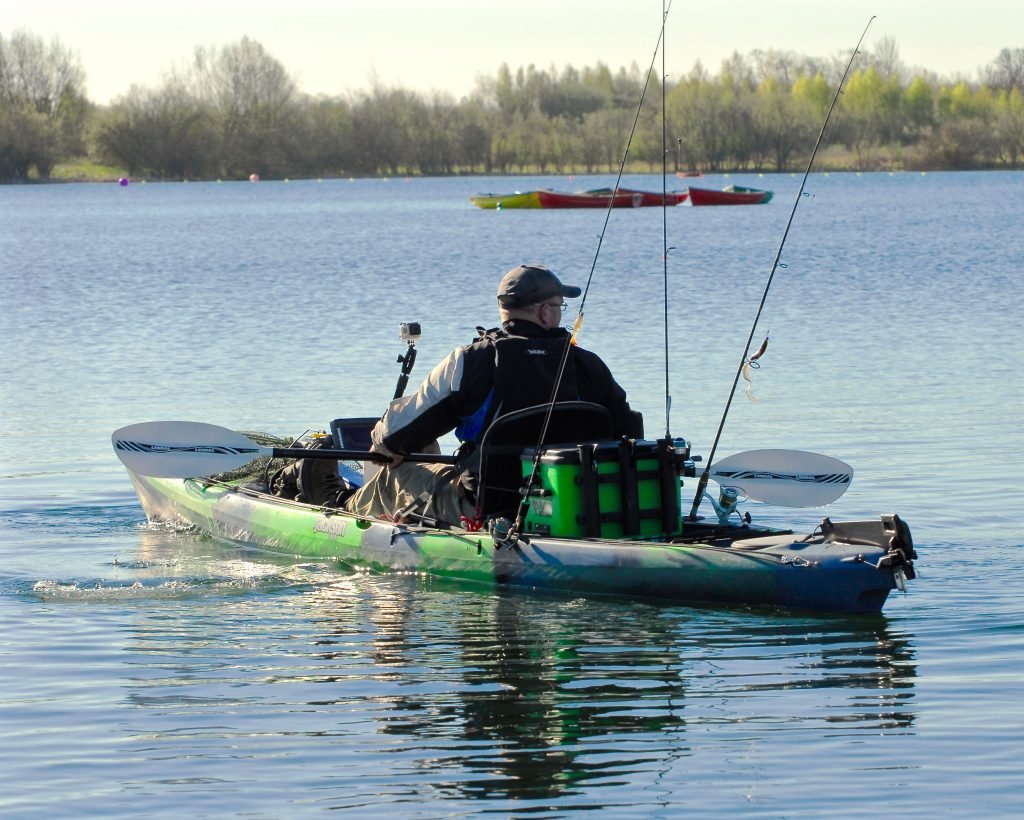
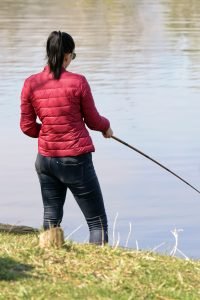
Third, what rods suit your personal preferences and still meet budget demands?
Here’s the reality of kayak fishing: It’s not if you’re going to lose gear, it’s when you’ll lose gear. No matter how careful you are, no matter how many precautions you take to secure your gear to your kayak, there will be moments when fate is not on your side.
A good rule of thumb, especially when starting kayak fishing, is to never take a setup out onto the water you can’t afford to lose. If you’re living on a Shakespear $50 combo budget but your spouse splurged for Christmas and got you that $300 Shimano setup you’ve been staring at all year, I don’t recommend taking it out on your kayak on your first outing after Christmas.
Likewise, if you only fish with $150 setups, don’t go out and buy a few $25 combos to toss on your kayak for fear of losing your beloved gear. If you’re uncomfortable with the gear you’re using on your kayak, you’ll be uncomfortable with your fishing. It will make for a ruff day on the water, and the fish will sense your frustrations and be less inclined to bite.
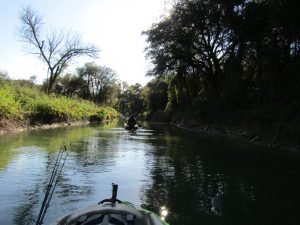
So based on these 3 needs, how do you select the right fishing rods for your kayak?
Many kayak anglers have a set of rods they use on their kayaks and separate rods they use when fishing elsewhere (bank, boats, etc.). This is an excellent choice for a wide range of reasons. Just to graze the surface of this topic consider these thoughts:
- If you fish with a rod all the time, you’re familiar with that rod. You know how it feels, how it casts, and what to expect from it when fighting a fish. This creates a sense of comfort with your gear that inevitably transfers to your fishing technique. The more confident you are in your gear, the more confident you’ll be in your fishing.
- If you have 5 fishing rods and always use some combination of those 5 rods, you have saved yourself a series of headaches. No struggling to decide which rods should go on each trip. You don’t have to remember how long it’s been since “that” rod was used (a long time spooled may mean the line needs to be respooled before being used). And you’re not going to be taking up a large amount of storage in your home or garage.
-
Maintenance and upkeep can be expensive. When you use fishing rods on a kayak, you’re going to have to watch your gear a bit more closely than if you always fish from a maintained dock. Especially if you fish in saltwater, you’re going to need to maintain your gear every outing. The more rods you take out on your kayak, the more rods you have to tend to.
If your fishing style is significantly different on your kayak from how you bank fish, you’re going to need to decide if you can adapt your gear to a different style of fishing. If your fishing style is too drastic to adapt, you’re going to get to a point where you want kayak specific fishing rods.
A word of caution before sticker shock shuts down your exploration: Specialty rods are going to be more expensive than generic (all purpose) fishing rods. There are, however, ways to get around those higher ticket prices. Marketplace, Nextdoor, and Facebook groups are just a few options for finding used gear that may suit your needs perfectly. Another great resource is affiliate programs. If you find a professional angler who uses the rod or brand you’re wanting, he will most likely have a discount code that you can use to purchase your desired fishing rod at a discount. Combine that with a company sale that is going and you can safe remarkable amounts of money when it matters most.
So how do you find those kayak specialty fishing rods?
As with almost every search these days, you’ll probably want to start with a basic Google search for kayak fishing rods. You may be surprised how many options are actually out there. Now, unfortunately, the same problem occurs with fishing rods as with kayak selection. You’re not going to know for certain what rods work best and feel best to you until you use them. Depending on where you live and the resources you have on hand, you may have to order your desired rods online if you want to go with kayak specific rods. For that reason, always know the return policy of the company you’re going to work with.

To narrow down your search you’ll want to consider a few factors in your decision making process.
One, if you are already loyal to a brand, check to see if they make kayak specific rods.
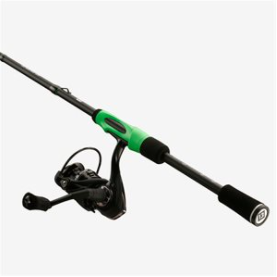
St. Croix is an excellent example of a gear company that makes kayak specific fishing rods. They tailored their standard rods to the more stringent demands of kayak fishing to give you to traditional feel and comfort of a St. Croix rod in a kayak friendly size. Lew’s, on the other hand, chose to keep their kayak anglers in mind when designing some of their rods so the options can be universally used on boat or kayak.
Alternatively, if you’re willing to explore different options or possibly unknown brands, you will want to look into kayak specific rod manufacturers. These are companies that have created specific fishing rods just for fishing in a kayak. The big differences:
- The rods are usually ½”-¾” shorter from the butt of the handle to the reel seat. This allows for easier maneuverability around your PFD and the limited reach of seated fishing.
- There is a heavier focus placed on weight and arm fatigue when designing the balance and sensitivity of the kayak specific fishing rods. You’re not just sitting there fishing all day. You’ll be paddling, maneuvering your kayak, and loading/unloading your equipment. All of which can add to your arm fatigue.
One of the more common names in kayak fishing of late has become Yakrods. They are currently producing an entire line of kayaker focused rods ideal for beginner kayakers all the way up to competitive professional anglers. Some of the features that make their rods stand out are:
- A carbon fiber composite blank proves to be lighter weight and more sensitive than the traditional fiberglass rods while also being sturdier and more forgiving than glass rods.
- Microwave guides are becoming the go-to option for modern fishing rods due to their narrower trajectory. This becomes exceptionally important when fishing so close to the water.
- EVA grips are becoming more popular for kayak anglers due to their durability when coming into contact with water as frequently as they do in a kayak.
- End-caps for tether attachment have become a favorite of mine recently. I am notorious for losing rods while kayaking. I make it a point to tether every rod I take with me now, but am frequently fighting to find a manageable attachment point. These end-caps have proven to be a game changer for my kayak fishing.
Yakrods isn’t the only kayak specific company out there, so don’t be afraid to look around. Youtube has reviews of a variety of fishing rods. Kayak anglers almost always list the gear they use on their video descriptions. Cashion is another manufacturer that has an entire kayak specific series of rods available
So, what do I use when kayak fishing?

My basic rod collection for kayak fishing includes my two Yakrod fishing poles, an ultralight, and an occasional catfishing pole.
When I’m competing or practicing for a tournament, I’ll typically have 6 fishing poles on my kayak. A mixture of light, medium, and heavy rods that are pre-rigged for specific lure types to speed up my casting rate.

When I’m fishing for fun I usually limit my gear to 3 or 4 rods. I have a Yakrod finesse rod and medium heavy all purpose rod that work great for the majority of the lures I fish with. I then add to this an ultralight setup (typically Shimano) that I love using for panfishing. As much as I enjoy fishing for big catches, I can be occupied for hours fishing for bait. It allows me to find the pockets the big fish will be coming to when they want to feed, and it gives me a good indication of what colors the bigger fish are going to be looking for. Depending on the fishery I am kayaking, I may add a 4th rod for heavy fishing (my 13 fishing heavy rod for umbrellas and large swimbaits or my Whisker Seeker for catfishing).
When I’m practicing for tournaments and competing, it’s a bit of a different story. Tournament fishing is about speed, accuracy, and efficiency. I have a set of 13 Fishing Omen and Fate rods that are rigged for specific baits (heavy swimbaits down to weightless finesse setups). As I talked about earlier, I found a manufacturer that I work well with, and want to have as much confidence as possible in my gear when competing. I spent several years waiting and watching for the rods I wanted to go on sale so I could get them and prices I could afford. As they were acquired, they were added to my kayak gear, and the rods I had less confidence in were fazed out.
Your goal doesn’t need to be a one stop trip to the sports store where you’re going to fork out thousands of dollars for the perfect collection of kayak fishing rods. Start small. Find a rod that fits you well (with your PFD in the way) and fits your financial needs. As your skills improve, your confidence grows, and your time on the water expands you’ll progress to other rods and you’ll be able to sell your used gear to recoup some of that money.



